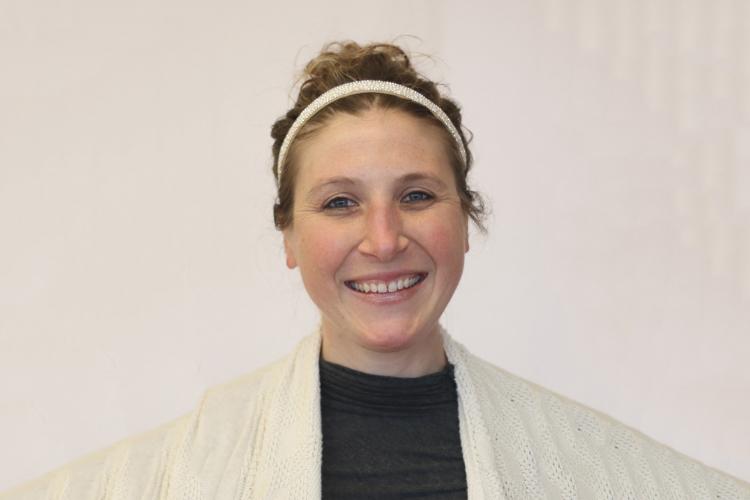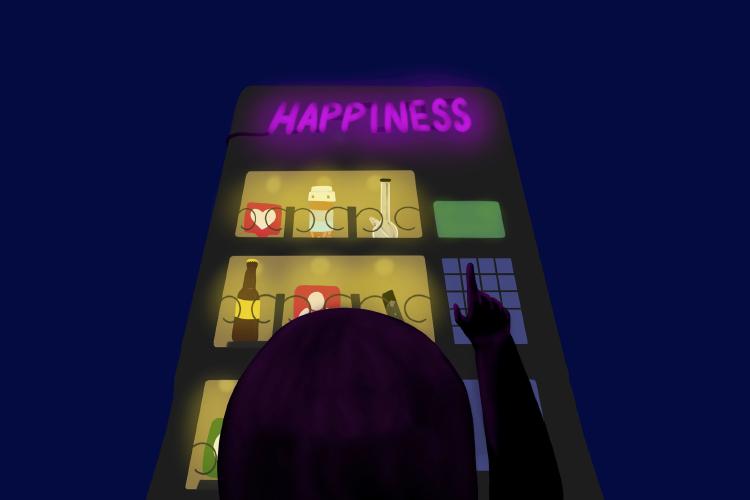[aesop_image img=”https://grantmagazine.com/wp-content/uploads/2018/03/shermanonline.jpg” panorama=”off” align=”center” lightbox=”on” captionposition=”left” revealfx=”off” overlay_revealfx=”off”]
Lukas Sherman
English teacher
“I think it’s important to make a distinction that happiness, which I tend to think of as more immediate but also more fleeting can also be satisfaction or contentment. I think (satisfaction and contentment) are things that will last longer, and maybe those are the things you start to pursue as you get older, whether it’s family or a job or something else. I think most students are probably in the happiness phase which tends to be more immediate and more like, ‘What’s going to make me happy now?’ … My friends and I tended to be focused on the future, but I don’t know how typical that was.”
[aesop_image img=”https://grantmagazine.com/wp-content/uploads/2018/03/reponline.jpg” panorama=”off” align=”center” lightbox=”on” captionposition=”left” revealfx=”off” overlay_revealfx=”off”]
Marta Repollet
Social studies teacher
“I think the push for standardized testing in the last 15 years has shifted the cultures of schools from giving students a rich experiential – as well as academic – learning experience to one where classes, and the entire structure of the school, exists to accommodate testing. All of these factors have contributed to students experiencing less happiness in their learning experience, and to one that emphasizes competition and standardized performance which has added to student anxiety and depression.”
[aesop_image img=”https://grantmagazine.com/wp-content/uploads/2018/03/battleonline.jpg” panorama=”off” align=”center” lightbox=”on” captionposition=”left” revealfx=”off” overlay_revealfx=”off”]
Paige Battle
Librarian
“(Now) there’s just so many more things to be involved in at higher levels. Like this whole idea of club soccer … That was not a thing when I was in high school. It’s so intense now, this whole thing of, you’ve got to figure what your sport is by the time you’re in elementary school so that you can just get on this track of being in the best club, and playing at an elite level. I think it’s kind of sad that that doesn’t allow for the ability to do other things. I could see how that could lead to some unhappiness.”
[aesop_image img=”https://grantmagazine.com/wp-content/uploads/2018/03/wolferonline.jpg” panorama=”off” align=”center” lightbox=”on” captionposition=”left” revealfx=”off” overlay_revealfx=”off”]
MaLynda Wolfer
Math teacher
“I would say access to information has changed the way the world operates and the emphasis of following your passions. I was taught primarily from archaic textbooks that suggested happiness stemmed from stability in a career. There has been much more available information and research that suggests that following your dreams, continuing to practice activities that bring enjoyment, making a career out of elements that fit you instead of fitting a career … actually make you happy in the long run. (Now), regardless of what (my students) hear in terms of adult persuasion, they’re following their passion.”
[aesop_image img=”https://grantmagazine.com/wp-content/uploads/2018/03/watsononline.jpg” panorama=”off” align=”center” lightbox=”on” captionposition=”left” revealfx=”off” overlay_revealfx=”off”]






































